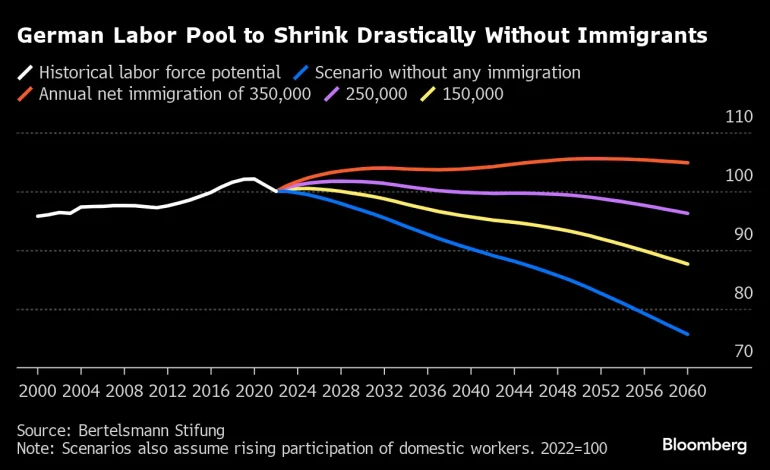Germany will require a substantial influx of immigrants each year to offset the negative impact of its aging population and maintain economic growth, Bloomberg reports, citing a new report from the Bertelsmann Stiftung.
The study, released Tuesday, highlights the urgent need for immigration as a key element in addressing the country’s demographic challenges.
The report suggests that Germany needs an annual influx of between 288,000 and 368,000 workers until 2040. The lower figure assumes increased labor market participation from women and older workers already residing in Germany. However, if these assumptions are not met, the higher figure becomes necessary to prevent a significant shrinking of the workforce and subsequent damage to economic growth.
These figures contrast sharply with past migration patterns. Net migration averaged approximately 600,000 annually in the decade leading up to 2023, influenced by influxes of refugees from conflicts such as the Syrian and Ukrainian wars. The preceding decade saw an average annual influx of roughly 136,000, according to Bloomberg calculations based on Destatis data.
The report’s release coincides with upcoming snap elections in Germany, where the economy’s sluggish performance and immigration policies are central campaign themes. The study’s findings are likely to fuel the ongoing debate surrounding immigration, particularly with the rise in popularity of far-right and far-left parties advocating for stricter immigration controls.









